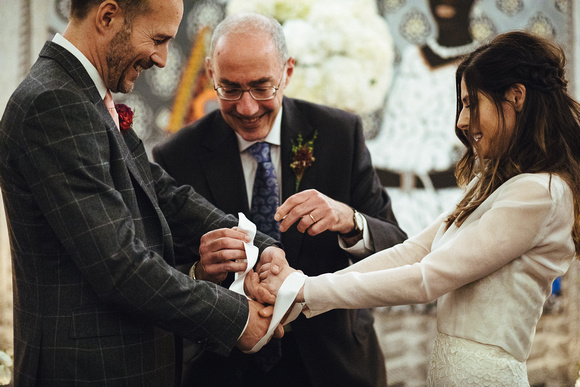
by Michael | Mar 6, 2018 | Blog
Most people assume that a wedding is either a religious affair (which involves following the regular marriage service liturgy) or a register office ceremony (following a standard non-religious script). Both are standardised and scarcely, if at all, personalised.
By the way, I have nothing at all against religious weddings. That’s how my wife and I married, and it was exactly what we wanted.
Register office ceremonies may be all that certain people want, and I’m fine with that.
Another option
But what if religion isn’t really your thing? What if you’re ‘marrying out’ and your church won’t let you have a full service? What if you don’t want the formulaic ceremony of the register office, but want something bespoke?
Then, of course, the civil celebrant can offer you something special that can tick all your boxes.
But it isn’t legal, is it?
According to current legislation, every wedding needs to be legally registered (which is where a registrar comes in).
If you want a personalised ceremony, this needn’t be a problem. Just go down to the register office (at a pre-arranged time) with two witnesses, get legally married and then have the wedding ceremony that YOU want in front of your guests at a place YOU choose.
If you’re marrying in a licensed venue, you can be a little creative – why not have the registrar’s part done first (even in a different room!) before enjoying the festive part in front of all your guests, relaxed and joyous?
So what’s “personalised” about it?
By definition, no two personalised weddings will be the same! However, this is how the finished product may be arrived at.
After an initial chat of maybe an hour, the civil celebrant will have given you a few ideas, explored your wishes and learnt a bit about you and your story.
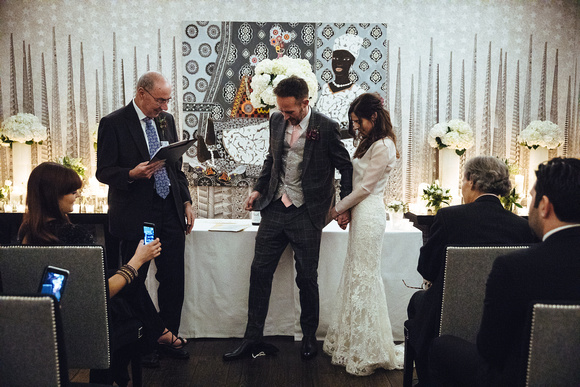
“Breaking the Glass” ritual
Depending on what you choose, you can include readings that reflect your personal beliefs (prayers, poems, prose) and control who reads and who participates. Any procession and/or recessional, music, rituals – all can be chosen by you to make a memorable and meaningful ceremony for YOU – and your guests.
Your wedding is probably the biggest, most significant day of your life, so surely it makes sense for you to be able to choose how, where and with whom you celebrate it!
Ask Michael for more information.
Photos courtesy of www.lyndseygoddard.com
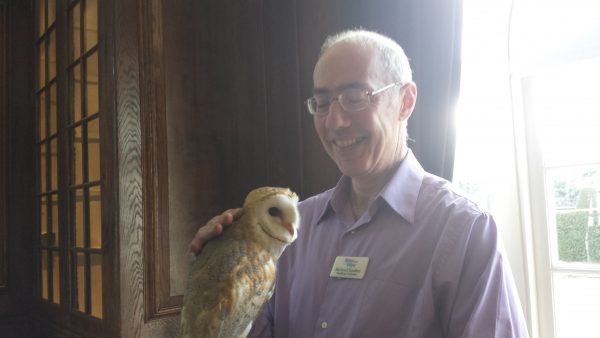
by Michael | Mar 6, 2018 | Blog
The wedding season is fast approaching . It’s exciting. Everybody is looking forward to a happy and successful wedding day, but things don’t always go smoothly.
We have to face up to facts. The causes are sometimes down to you and me.
What are the most important things that the main players at a wedding need to do? What must they avoid?
Weddings can be a time of stress, but common sense and good manners will guide most of us most of the time. But what if things go amiss?
As a civil celebrant myself, I am supposedly in charge during the ceremony. I can usually sort things out, but my influence and control can only extend so far!
So here are a few words of preventative advice for the people in the spotlight on the day:
Bride
- Remember to speak to and thank all your wedding guests at some point (they have come to see and support you, after all).
- Keep off the alcohol – at least, before the ceremony! Be aware that there will be plenty of embarrassing photographic evidence to haunt you later in life, if you ignore this counsel. And consider the impression a drunken display may make on your new relatives!
Bridegroom
- Much of the stress in the run-up to the wedding day is borne by the bride. Do what you can, especially on the day, to share the load.
- Don’t hide away with your mates; meet and make conversation with your new wife’s friends and even relatives.
- Don’t forget to bring the wedding rings.
- Don’t get rolling drunk, either! You have a speech to deliver effectively and it’s an idea to make the right impression on your new in-laws.
- If there’s a buffet, ensure your bride gets fed (as she’ll inevitably be the centre of attention)
The Bride’s mother
It is good to remember whose big day it actually is – it’s really your daughter’s. Even if you’ve shelled out thousands of pounds. So be there early, be willing to help, but don’t criticise either other people or arrangements. Be prepared to play second fiddle.
The Groom’s mother
As with the bride’s mother, be supportive rather than domineering or critical. Be helpful and open and say nice things to the bride! Don’t try and get revenge for any perceived slight during the wedding planning.
The Father(s)
Just like the bride and groom, you need to be sober and in control, not least when toasting the couple’s marriage.
Don’t use the opportunity to get even with somebody who you feel has affronted you during the wedding build-up. Ensure you say nice things about the couple – and keep it short!
The Best Man (or Woman)
- Your role is not fixed, but it probably includes arriving early at the venue and checking that everything – and everybody – is ready to roll. You may have to sort some things out at the last moment, so do your best to be helpful and cheerful! Calming the groom down may be mostly down to you.
- You will have an important speech to deliver. Stay sober (at least, until you have done this!). Ideally, your speech should be funny, but accessible to all. Be sincere too. Avoid bad language, insults, don’t discuss religion, politics or the couple’s family (unless you’re very sure you’re on safe ground). Don’t go on interminably. Do your best to speak slowly and clearly.
If people bear in mind these few, simple guidelines, there is no reason why that wedding should not be memorable – for all the right reasons!
For more advice, feel free to contact me.
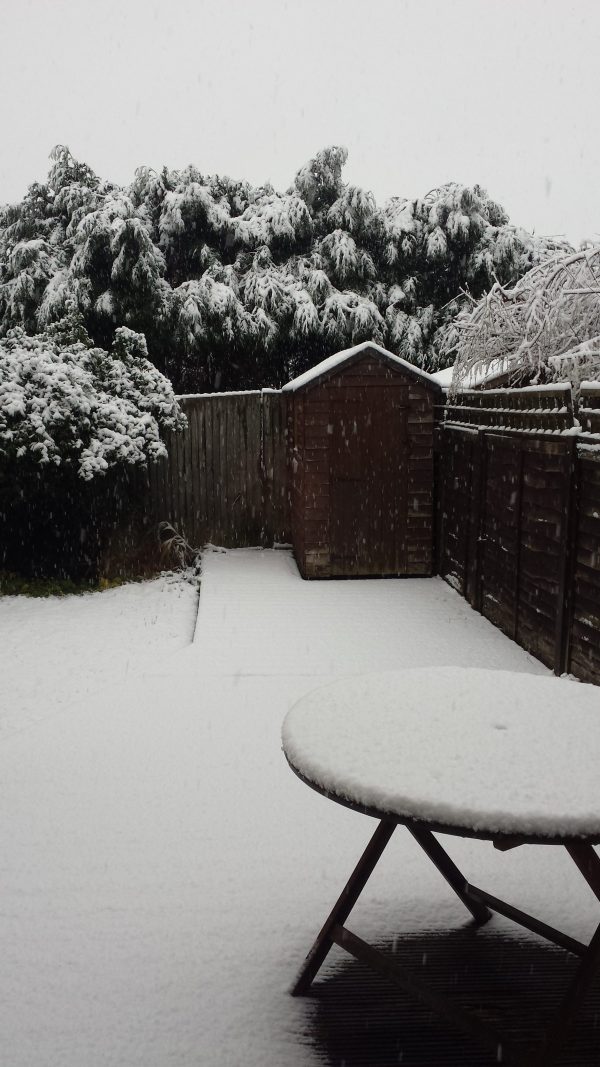
by Michael | Mar 6, 2018 | Blog
I don’t know how the arctic spell was for you, but we got away with it relatively easily here in Harrow. Of course, TfL had its issues, but we were able to do most of what we needed to do. Otherwise, we put on an extra layer, turned up the heating and waited for it to pass.
The enforced office time gave me a chance to think about readings for ceremonies. As a civil celebrant, I very occasionally write something new. More frequently, I adapt something to fit the particular circumstances we are marking. It’s not always down to me to source my material. I am working with Jo and Jimmy currently, and I am indebted to them for this suggestion. It’s a lovely piece that was entirely new to me.
It comes from Nicole Kraus’ “The History of Love”. See what you think.
“Once upon a time, there was a boy. He lived in a village that no longer exists, in a house that no longer exists, on the edge of a field that no longer exists, where everything was discovered, and everything was possible. A stick could be a sword, a pebble could be a diamond, a tree, a castle. Once upon a time, there was a boy who lived in a house across the field from a girl who no longer exists. They made up a thousand games. She was queen and he was king. In the autumn light her hair shone like a crown. They collected the world in small handfuls, and when the sky grew dark, they parted with leaves in their hair.
“Once upon a time there was a boy who loved a girl, and her laughter was a question he wanted to spend his whole life answering.”
I’ll keep it short and sweet this week. If you have a favourite reading that could work in a ceremony, I’d love you to send it to me. I’m always open to good ideas.
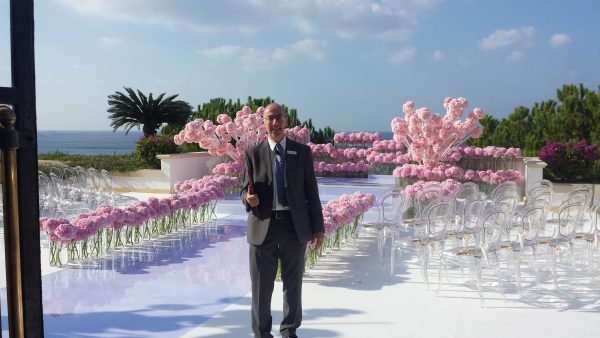
by Michael | Feb 27, 2018 | Blog
It’s obvious from my conversations with potential clients that they have some mistaken beliefs about civil celebrants. I want to tackle a few here, and put the record straight.
Let’s take three fallacies:
- “All celebrants do is turn up for half an hour on the Saturday.”
Not in my experience!
As far as I am concerned, on the day, I aim to arrive one hour before the ceremony. That way, I am able to liaise with relevant persons (event planner, groom, best man, bridesmaids, etc.) and check out the venue. The purpose is to ensure everything is in place and to reassure.
I then conduct the ceremony and, although available for photos straight after, I can normally depart then.
However, my work is not limited to the day itself!
After my initial meeting/call with the clients, which usually takes up to an hour, I follow up by sending a summary e-mail along with my Terms & Conditions. Assuming the client wants to work with me, I thank them and tell them when to expect my draft.
A considerable amount of work may go into the first draft. Guided by what the client has suggested, I put together a ceremony that is unique. It may be formal or relatively relaxed; serious or with bits of humour; religious, partly so, or totally secular. It may contain rituals. I may work with the couple to write their own vows, if they want this, and like to personalise the ceremony even more by including their ‘story’.
So there is a lot to put together, and there will normally be an exchange of e-mails before we finish up with a product every word of which the couple approves and, hopefully, loves.
Contact with the client doesn’t end there. It can be more random (especially nearing the ceremony date) and, often, there is a rehearsal to conduct.
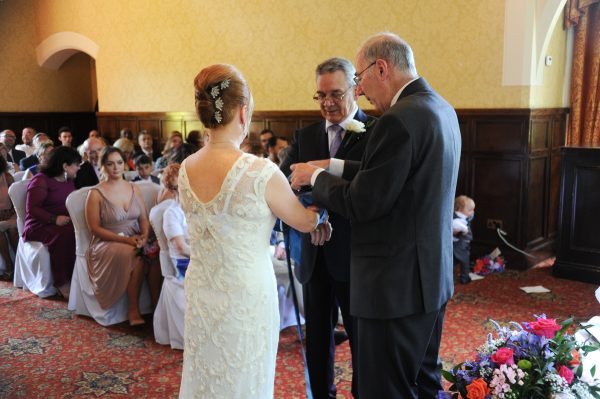
- “Anyone can do it.”
As you will see from the answer to the first question, there are a number of skills that come into play as part of the process of preparing a special ceremony.
Firstly, there are questioning and listening skills, especially during the initial interview. I need to be able to take clients to their ceremony in their imagination. Then we can focus on what they really want (and don’t want). I offer ideas (or listen to and understand those of the clients) and make helpful suggestions.
Secondly, writing skills are essential. I don’t very often write original material, but when I do, it has to fit in with the tone. Similarly, with other people’s texts or poems. It takes time to choose these successfully.
Thirdly, I have to use my experience to advise what may work in practice and what may not.
Fourthly, I have to use my experience on the day to cope with, and minimise, unexpected occurrences.
Fifthly, I need to be in control on the day and keep everybody calm.
Finally, I need to deliver a wonderful ceremony. My presentation skills must be first-rate, and I need to conduct the ceremony with skill and efficiency as well as at a human level and, where appropriate, with humour.
Many people will have many of these skills, but few will have all.
- “You’re too expensive.”
As I hope I have now shown, a professional civil celebrant has very specialised skill sets. Not many people can do such a job effectively, so there is a scarcity element.
Moreover, clients can benefit from a civil celebrant’s wide experience, not only as the ceremony is put together but also on the day.
Additionally, time and travel to get to the venue need to be factored in.
On a practical note, a good civil celebrant will belong to an Association (such as the AOIC), have full indemnity insurance etc. and be fully trained. All these are expensive items, enhance the job, and deserve to be reimbursed.
I hope I have made my case successfully – and that I shall be hearing from you!

by Michael | Feb 19, 2018 | Blog
Weddings aren’t always easy. There can be obstacles, some unexpected, others predictable. It’s how you face and overcome them that matters.
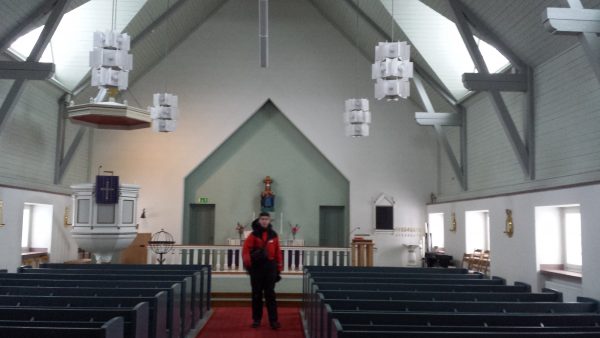
I started thinking like this when on holiday for a few days. We were delving well within the Arctic Circle. The Swedish village we stayed in (Karesuando) had a lovely church (pictured here). So the locals have a viable venue for a wedding (as long as they want a religious ceremony).
But when would be a good time and how would you organise the reception? The main thing to consider would surely be the weather. In February, the time of our visit, the temperature would typically descend to minus 15, and, of course, there was sure to be a metre or more of snow on the ground.
If you choose the summer, there is plenty of daylight. However, we learned that mosquitoes are a major problem. (I mean ‘major’ – apparently, you can’t go out without full netting.)
So when would be the best season for your big day?
There are an issue or two to surmount in Lapland.
Most people, who dwell in less severe climes, have other obstacles to overcome. (Not to overlook the fact that for an outdoor wedding in, say, the UK, the weather issue remains very much to the fore).
For some, the obstacles may be a matter of convenience: can the ceremony and reception be held at the same venue? For others, the primary concern will be balancing the budget. For others again, it may be a question of “Whom do we invite – and whom do we leave out?”
Of course, there’s no definitive answer to any of these, as each will depend on the couple and particular circumstances. I would advise devoting plenty of time, once the budget has been set, to the guest list. (I genuinely forgot to include an elderly aunt at my own wedding, and the fall-out was not insignificant!)
Then there’s the ceremony itself. Will it be conventional or, maybe, unique? Who is going to make the final decision here – the couple or the families?
Is it going to be church?
Is it going to be part-religious – so you can have a civil celebrant conducting a personalised ceremony for you, once the registrars have done the legal bit?
Or perhaps you’ll marry legally at a Register Office, and then hold the ceremony of your dreams in the venue of your dreams. To all intents and purposes, this will be your actual wedding. Again, your civil celebrant will be able to offer you ideas and guidance.
Usually, wedding obstacles are not insurmountable. Often, advice and compromise are sufficient. I’ve helped out quite a number of couples now with mixed-faith issues.
Can I help you too?
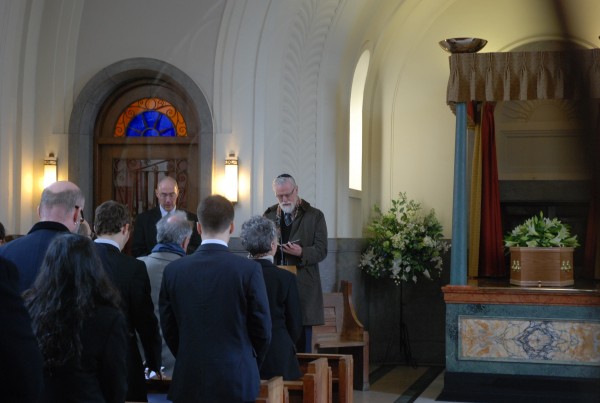
by Michael | Feb 6, 2018 | Blog
I doubt if such a thing exists as a “perfect” funeral. However, I know that Funeral Directors and celebrants like myself normally do their utmost to satisfy needs and desires.
I ought to point out that, as a civil celebrant, my comments here refer to secular or part-religious ceremonies only.
Problems
A difficulty arises if you come up against feuding families. Then compromise is the best you can hope for.
Occasionally, demands are not practical. We were asked to put on a short video display about the deceased during the crematorium service. Unfortunately, the crematorium simply didn’t have the technology to permit this. So we had to say no. (At least I could suggest that the video could be shown at the hotel where the reception would be held.)
Compromise
Not infrequently, all that people want is a fairly standard service. It might – or might not – be religious. It may have a few religious elements. All that is fine. They are not always aware that there are time limits. People simply can’t always have everything they want (unless they book a double slot). They may have to shorten the service to accommodate the eulogy. Or vice versa.
Theme
People may want a theme. I conducted a very Chelsea-heavy service once. (Not easy for a Spurs supporter!) But why not?
Music
What sort of music should there be? Well, that depends on each individual case. People assume they should only play religious or classical music, but there’s no reason for a celebration of life to be too solemn (if that’s the intention). My favourite choice of exit music – for a 92-year-old lady who loved Freddie Mercury – was “Killer Queen”. Guests couldn’t help but smile – indeed, I defy anybody not to, even at such a moment!
Synthesis
How are all these differing needs/wishes put together?
The home visit is key. The celebrant will ask questions, make suggestions and take away a feeling for what is wanted. Then appropriate readings and music can be chosen. The tone can be agreed on.
I always try to get a draft off to the family as soon as possible. Then they can decide if they want anything changed, and – hopefully! – there’ll be time to organise that.
The result might not be perfect, but, hopefully, it will be as near as humanly possible.
If you would like help planning a service (it could be during somebody’s lifetime, incidentally), feel free to give me a call.









